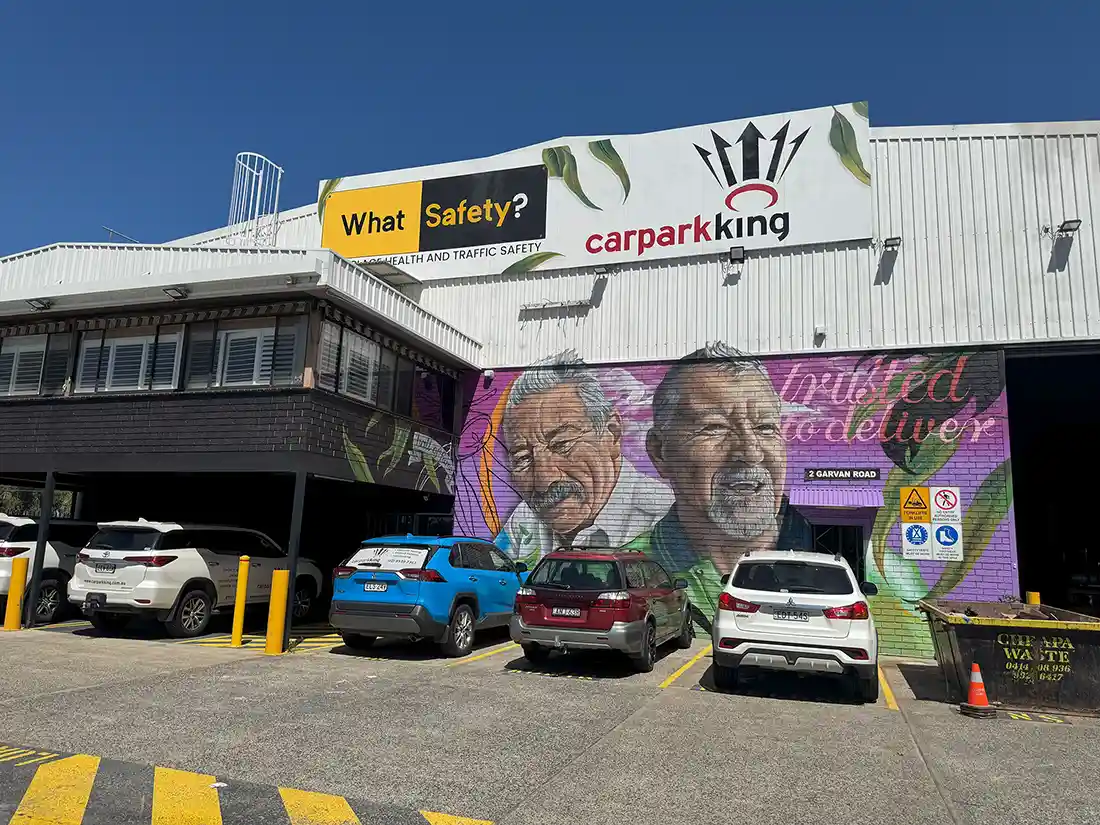Thermoplastic Line Marking
Best Quality, Best Value .. Carpark King are the industries most experienced & longest-serving Line Marking Company
what is Thermoplastic?
Thermoplastics are a common form of ‘Long Life Line Marking’ used on roads, car parks, playgrounds or any other hard standing such as concrete and asphalt.
Usually Ultra-durable and fast to apply, most thermoplastic markings have a service life of approximately 3-5 years, depending on the volume of traffic in each situation.
The Thermoplastic itself is usually a dry mixture of resin, pigment, glass beads, and filler. When heating is applied during the application process, the mixture moves into a liquid state which means it can be extruded or sprayed onto the paved surface.
The mixture then cures as it is allowed to cool down and will return to a solid form, forming a bond with the surface to which it was applied.
what Are Thermoplastics Used for?
Generally known as a ‘Long Life’ Line marking material, hot-applied thermoplastic products are mostly used for road markings in high wearing traffic areas, where a raised profile is desirable and reflective properties are preferred to assist with vision at night time and during adverse weather conditions.
The types of Line Marking that Thermoplastics are commonly used for include:
What Are the Benefits of Long Life Thermoplastic Markings?
Thermoplastics certainly have their place in the list of preferred uses, with their main strength being their durability and resilience to high traffic, high wearing situations.
The advantages of thermoplastics are as follows:
- Can come preformed into customs sizes, shapes, and logos for easy installation
- Resistant to ‘high wear’ situations such as stop sign and giveways bars at intersections
- Can be embeded with reflective materials to allow for better nighttime visibility
- More durable than paint
- Good bead retention
- Dries quicker than paint and can be driven on after some 2-3 minutes. This is great in high traffic areas as it can significantly reduce lane closure times during application.
Some Disadvantages of thermoplastics are as follows:
- Susceptible to snow plow in high altitude cold climates
- sensitive to changes in temperature in which “freeze-thaw” will typically cause cracks, pinholes, and grooves throughout the entire marking
- thermoplastics need to have a primer applied before they can be used on concrete surfaces and this adds time and installation costs.
- Because thermoplastic requires high heat application ( approximnately 450 F or 230 C), this can lead to application errors, darkening of the material if applied too hot and risk of burns to the thermplastic installers.
- More expensive than other Line Marking products such as paints
- Usually needs to be applied in warmer temperatures on surfaces that are free of moisture
Types of Thermoplastics
Below is a list of thermoplastics we use in our line marking operations.
Preformed Thermoplastic
Most commonly used for symbols and lettering, numerals, arrows, road marked safety signs, stop and give way bars and areas where a raised profile makes sense.
Preformed thermoplastic comes in rolls for road signs and is loved throughout this industry for a hard-wearing finish and convenience in application.
Extrusion Thermoplastic
Usually white or yellow this product is pre-heated and then extruded through a steel slit which forms a line of very consistent thickness and width. This method results in a highly reflective finish perfect for nighttime and adverse weather conditions.
Screed Thermoplastic
Gets its name because it is designed to be applied using a hand screeder or pram screeder.
Profile Thermoplastic
Everyone has heard the loud vibration or ‘rumble’ that happens when you veer onto the line on a freeway, or higher risk roadway. This is caused by raised profiles in the thermoplastic line marking, also known as ‘Audio Tactile’ warnings.
the raised ribs or other profile types are embedded into the thermoplastic after a baseline coat has been established.
All the thermoplastic road markings that Carpark King use do comply with Australian Standards, in approved colour types.

